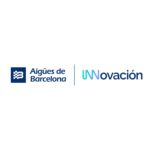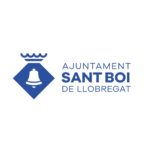How can technology contribute to the non-invasive detection and repair of water leaks in irrigation systems in Sant Boi de Llobregat?
Although the hydraulic performance in Catalonia is one of the most positive, according to data from l’Agrupació de Serveis d’Aigua de Catalunya (ASAC), Catalonia loses, on average, 10% of the drinking water that circulates through the pipes. In the current context of extreme drought, the minimisation of drinking water losses due to leaks is of the utmost importance and urgency, and is therefore a top priority. The municipality of Sant Boi de Llobregat is a member of the 2030 Urban Agenda and one of the objectives prioritised in this framework is the reduction of water consumption and the reduction of water consumption in general.
In Sant Boi de Llobregat several drinking water leaks have been detected in watering systems in parks and gardens and in the supply of municipal infrastructure such as public fountains, schools and sports centres. Although these are always small leaks, the high number of existing leaks and the gradual deterioration of the network mean that we have to tackle the challenge of acting as efficiently as possible.
The main cause of these leaks is the age of the cannons and their technical specifications (such as, for example, their tolerance to soil pressure). Moreover, in the context of the current drought, the irrigation system is tied up so it is expected that the number of operational problems and, above all, leakages, could increase significantly when these installations are put back into operation. Despite the various tests carried out with different systems, there is still no effective system available to locate them and thus be able to proceed to repair them.
In this sense, the challenge is to seek innovative technological solutions to detect and repair water leaks in pipes in a non-invasive way in Sant Boi de Llobregat. In this way, the aim is to facilitate the location and repair of leaks, increase the use of water and reduce consumption costs.
The objective for Sant Boi de Llobregat is to be much more efficient in the consumption of drinking water in order to achieve a reduction in consumption at municipal level.
The project contributes to the following SDGs:
SDG 6 – CLEAN WATER AND SANITATION / SDG 9 – INDUSTRY, INNOVATION AND INFRASTRUCTURES / SDG 11 – SUSTAINABLE CITIES AND COMMUNITIES
The solutions must have a level of technological development equal to or greater than TRL 6 (Technology Readiness Level), and their implementation through a pilot must be viable, both technically and economically, in a timeframe between 6-9 months. The winning solution will be piloted in the municipality of Sant Boi de Llobregat. Those solutions that have scalability potential and whose management is as autonomous/independent as possible will be valued positively.
– Interior repair of the pipe without civil works
– Application in small distribution networks, water mains or internal equipment networks, in drinking water pipes and with a variety of diameters (25-90mm and more commonly 40mm and 50mm)



Key dates
How to participate?
Find out how the call works and present your proposal.
